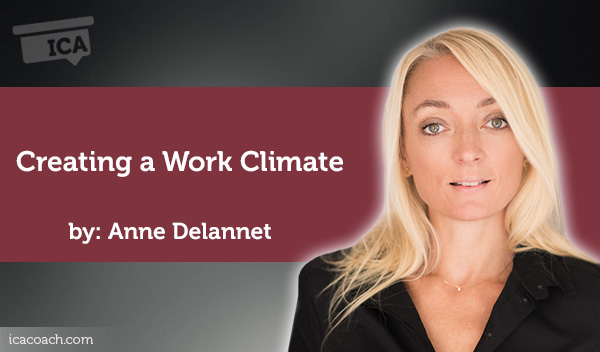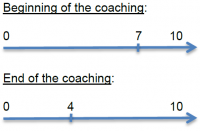
Coaching Case Study By Anne Delannet
(Life Coach, THE NETHERLANDS)
1. Who are the main players in this case study
Femke*, a 38 year old woman.
2. What is the core problem or challenge you applied your coaching skills to?
Why is it a problem?
Femke worked for a few months as a personal assistant in a lawyer’s office.
She wanted to gain confidence, to find ways to be less stressed at work. She felt “lost” and not qualified enough.
Previously she worked as an administrative assistant for government offices. She had to provide administrative support according to very specific instructions without any space for creativity.
Her new position required making decisions, organizing her own working duties and being able to prioritize without any guidelines.
How long has it been a problem?
Femke was naturally reserved: she said: “Young, I was a very quiet and a well-behaved kid!” With her education and like in her previous job she wasn’t really stimulated to come up for herself. Now she has to be a self-starter which requires stepping out of a safe and comfortable environment.
What is the worst thing about this problem?
Her limited belief in that she was not good enough, didn’t have the knowledge to be self-confident enough for this new position.
Why has no one been able to solve it so far?
Her belief system keeps her thinking & acting the same way.
2. What specific coaching skills or approach did you use in this case?
3. Explain your process in detail
During our discovery session (which was face to face) I remember to let her talk about everything she obviously didn’t talk about before. I allowed her the space to express freely her feelings and also to establish trust. Because I could observe that was very important (tone of voice, face, gesture). I believe her first need was to talk freely without being judged!
One part of the process was clearly about her needs regarding her new position and how to get all the resources in order to be efficient and comfortable and consequently to increase her self-confidence.
Very quickly she expressed the purpose of the coaching; Femke was really motivated to start the process.
She was feeling uncomfortable about not having the knowledge in this new role.
Everything was new: working’s style, working’s environment, the people… She was clearly out of her comfort zone with no other options but to move forward.
Over the course we discussed about how to handle this new position in terms of organization, time management, resources.
Every session she was coming up with her own agenda and could always commit to actions. She progressed very quickly and was happy to report it to me.
I used the Wheel of Life: she defined her own areas/topics to focus on and was able to plan and take actions. That work gave her the structure and the clarity to visibly improve her work and brought her the awareness to achieve agreed-upon further results.
She needed to find solutions on every “problem” but behind that she also said that her deep desire was to evolve and to gain lightness in her life and not only in her work.
“After this goal, I will start to study to get my master’s degree, I want to evolve.”
“I deserve it!”
I could notice that she gained step by step more self-esteem & confidence.
The other part was more about her inner-self. The hidden beliefs, feelings, emotions that were holding her back.
Very quickly she talked about her stress, “I want to be confident and get rid of that feeling”
She assessed her stress as following (0 out of 10, 10 being the more stressful level):

As an assignment I suggested she makes a list of:
As a result, having structure helped her a lot to be less worried about things.
Working on her core values was also really useful because she understood that she was not aware of her own values. Those she knew were more universal and related to corporate values (respect, rules, loyalty….).
4. What were the results of your process? Was your coaching/program effective? Why? Why not?
Coaching was very effective for Femke, because she was really committed to take actions (i.e.: routine at the office, other ways to archive documents, a planner on her fridge, to integrate a running group), good awareness about progresses during the coaching and good self-reflection between 2 sessions.
She told me that our work was very helpful and she gained considerably confidence at work.
But…
I wonder if she has been able to keep moving on after our coaching process because my assumption is that she could move on because of our collaboration.
5. If you could approach this problem again, what would you do differently?
I would try to settle a clearer coaching agreement, more measurable for the client and would dig deeper regarding her general being.
She mentioned several times her age. After reflexion, I would bring more curiosity:
I would have asked her now “I have heard you mentioned your age many times, what’s behind that?”
And also Femke never really showed emotions, she had always the same level of tone and attitude.